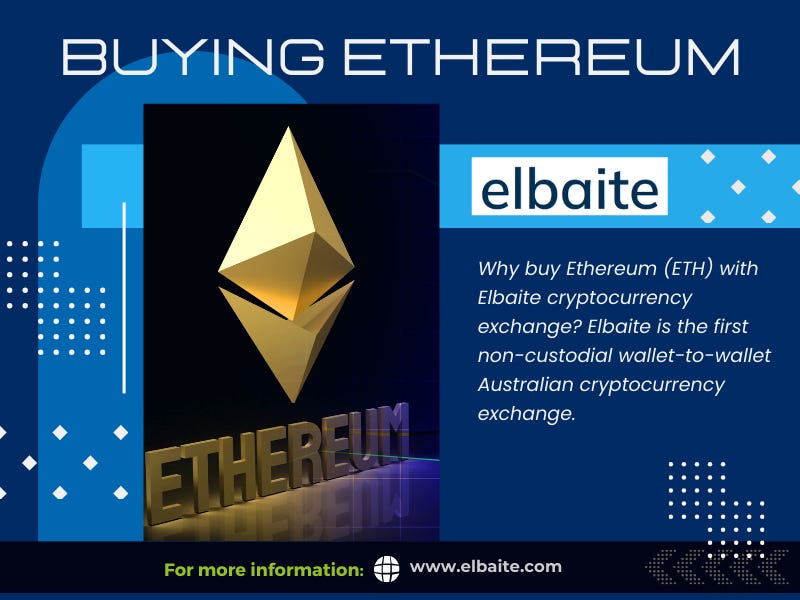Ethereum Crypto Buy Or Sell Understanding Strategies Risks And Future
As ethereum crypto buy or sell takes center stage, this opening passage beckons readers into a compelling exploration of one of the most dynamic cryptocurrencies in the market. Ethereum has established itself not just as a digital currency, but as a platform that empowers developers to build decentralized applications and smart contracts, fundamentally altering how we interact with technology and finance.
In this discussion, we will delve into the essentials of Ethereum, exploring the factors that influence its price, effective strategies for buying and selling, and how to manage risks associated with investments in this volatile market. From understanding technical indicators to anticipating market trends and assessing the future of Ethereum, we aim to provide a comprehensive overview for both new and seasoned investors.
Understanding Ethereum
Ethereum is one of the most prominent cryptocurrencies in the market, serving a unique purpose beyond that of a digital currency. Created in 2015 by Vitalik Buterin and a team of developers, Ethereum was designed to be a platform for decentralized applications (dApps) and smart contracts. Its primary aim is to enable developers to build and deploy applications that run on a blockchain, promoting transparency and security.At the core of Ethereum’s functionality are smart contracts, which are self-executing contracts with the terms directly written into code.
This allows for automatic enforcement of agreements without the need for intermediaries. Additionally, Ethereum’s blockchain technology underpins a vast ecosystem of dApps ranging from finance to art, contributing significantly to the overall growth and evolution of blockchain technology.
Technology Behind Ethereum
Ethereum operates on a decentralized platform, which means that no single entity controls it. This decentralization is achieved through a network of nodes that validate transactions and maintain the blockchain. The Ethereum Virtual Machine (EVM) is a crucial component, allowing developers to create and run smart contracts in a secure environment.The importance of Ethereum in the blockchain landscape cannot be overstated.
It has paved the way for new initiatives such as decentralized finance (DeFi) and non-fungible tokens (NFTs), establishing itself as a foundational technology for the future of finance and digital ownership.
Factors Influencing Ethereum Prices

The price of Ethereum is influenced by a myriad of factors, with market trends and investor sentiment playing pivotal roles. Understanding these elements is crucial for anyone looking to invest in Ethereum.Major events, such as network upgrades and forks, can significantly affect Ethereum’s price movement. For instance, the transition to Ethereum 2.0, which aims to improve scalability and reduce energy consumption, has created anticipation in the market, leading to price fluctuations.Global economic indicators, including inflation rates and interest rates, also impact Ethereum’s value.
As traditional markets react to economic changes, cryptocurrencies like Ethereum often respond in kind, creating a complex interplay between global finance and digital assets.
Key Factors Affecting Price
- Market Trends: Bullish or bearish sentiment can shift prices drastically.
- Major Events: Upgrades, forks, and partnerships can drive price changes.
- Investor Sentiment: Public perception and media coverage influence buying behavior.
- Global Economic Indicators: Changes in the economy can affect investor confidence in cryptocurrencies.
Strategies for Buying Ethereum
For new investors, navigating the process of buying Ethereum can be daunting. A comprehensive approach is essential to ensure a safe and informed purchase.Several platforms allow users to buy Ethereum, including centralized exchanges like Coinbase and Binance, as well as decentralized exchanges. Investors should also consider using wallets for added security, ensuring that their assets are safeguarded against potential hacks.Before making a purchase decision, investors should follow a checklist to evaluate their options thoroughly.
This checklist includes evaluating fees, security features, and the reputation of the exchange.
Guide to Safe Purchase

- Choose a reputable exchange with strong security measures.
- Consider using hardware wallets to store your Ethereum safely.
- Review transaction fees and exchange rates.
- Verify your identity and account to comply with regulations.
Indicators for Selling Ethereum
Knowing when to sell Ethereum can be just as crucial as knowing when to buy. There are several indicators that can suggest an opportune time for selling.Technical indicators such as moving averages and relative strength index (RSI) are commonly used by traders to identify potential selling points. These tools analyze price movements and help investors make informed decisions based on market trends.Additionally, external factors such as news events and shifts in market sentiment can also impact the decision to sell.
For example, negative press coverage or regulatory announcements may push investors to sell before prices drop.
Signs of a Good Selling Opportunity
- Achieving target profit levels as per your investment strategy.
- Technical indicators indicating overbought conditions.
- Negative news affecting market sentiment.
- Market trends showing signs of reversal.
Risk Management in Ethereum Investment
Investing in Ethereum, like any investment, comes with inherent risks. Establishing a robust risk management framework can help mitigate potential losses.Strategies such as stop-loss orders can be effective in protecting investments from falling prices. By automatically selling Ethereum once it reaches a predetermined price, investors can minimize their losses during market downturns.Diversification within cryptocurrency portfolios is also essential. By spreading investments across various cryptocurrencies, including Ethereum, investors can reduce their overall risk exposure.
Framework for Risk Management
- Implement stop-loss orders to limit potential losses.
- Diversify your cryptocurrency portfolio to spread risk.
- Regularly review and adjust your investment strategy based on market conditions.
- Stay informed about market trends and economic indicators.
Long-term vs. Short-term Investment Strategies
Investors need to choose between long-term and short-term strategies when it comes to Ethereum. Each approach has its own benefits and drawbacks.Long-term investment strategies typically involve holding Ethereum for an extended period, allowing investors to ride out market volatility. Historically, long-term holders have seen substantial returns, particularly during bullish market phases.Conversely, short-term strategies involve frequently buying and selling based on market movements.
This approach can yield quick profits, but it carries higher risks due to market fluctuations.
Investment Strategy Comparison
- Long-term: Generally more resilient to market volatility, focusing on growth over time.
- Short-term: Requires active management and analysis but can yield quick returns.
- Market cycles: Both strategies should consider market cycles for optimal timing.
The Future of Ethereum
Ethereum is on the brink of several significant developments that could reshape its ecosystem. The anticipated Ethereum 2.0 upgrade is set to enhance scalability and reduce energy consumption, which may attract more investors and dApp developers.Understanding the implications of Ethereum 2.0 is vital for making informed investment decisions. As Ethereum transitions to a proof-of-stake consensus mechanism, it aims to improve efficiency and security, potentially boosting its market performance.Trends indicate that Ethereum’s future may be bright, with projections suggesting continued expansion in DeFi and NFT markets, creating new opportunities for investors.
Upcoming Developments
- Ethereum 2.0 upgrade focused on scalability and energy efficiency.
- Increased adoption of DeFi applications and NFTs.
- Future partnerships and integrations that may drive demand.
Community Insights and Expert Opinions
The current state of Ethereum investment has drawn interest from various industry experts and the community. Insights from these professionals provide valuable perspectives on whether to buy or sell Ethereum at this moment.Community sentiment plays a crucial role in shaping market trends, and forums or social media channels can reflect collective opinions. Many analysts highlight the importance of the upcoming Ethereum 2.0 upgrade and its potential impact on price movements.A summary of differing viewpoints can help investors navigate the complexities of Ethereum investment decisions, as opinions can diverge widely.
Expert Opinions and Community Sentiment

- Industry experts emphasize the potential of Ethereum 2.0 as a game-changer.
- Community discussions reflect optimism regarding future Ethereum applications.
- Various predictions highlight the importance of monitoring market conditions for investment decisions.
Final Summary
In conclusion, navigating the decision to buy or sell Ethereum requires a thoughtful approach, informed by a variety of factors including market sentiment, technological advancements, and personal investment strategies. As the Ethereum ecosystem continues to evolve, staying updated with the latest developments will be crucial for making informed decisions. Whether you’re considering a long-term investment or looking for short-term gains, understanding the intricacies of Ethereum will help you chart a successful path in the ever-changing world of cryptocurrency.
Frequently Asked Questions
What is Ethereum?
Ethereum is a decentralized platform that enables the creation of smart contracts and decentralized applications (dApps) on its blockchain.
How do I buy Ethereum?
You can buy Ethereum through various platforms such as cryptocurrency exchanges, and wallets, by using methods like bank transfers or credit cards.
What factors should I consider before selling Ethereum?
Consider market trends, technical indicators, and news events that may impact Ethereum’s price before deciding to sell.
Is investing in Ethereum risky?
Yes, investing in Ethereum involves risks due to market volatility, regulatory changes, and technological advancements.
What are the benefits of holding Ethereum long-term?
Long-term holders may benefit from potential appreciation in value, technological advancements, and broader acceptance of Ethereum in various applications.



